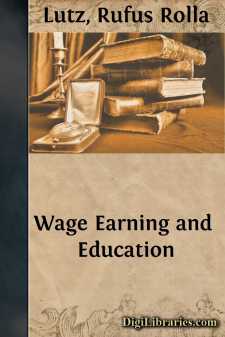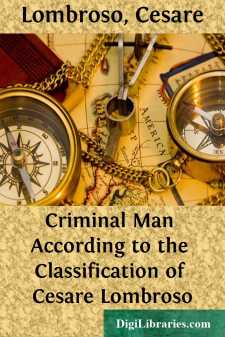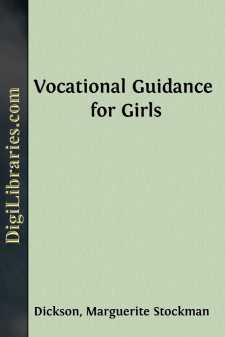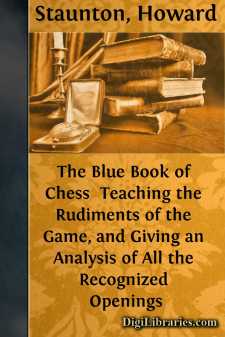Categories
- Antiques & Collectibles 13
- Architecture 36
- Art 48
- Bibles 22
- Biography & Autobiography 813
- Body, Mind & Spirit 142
- Business & Economics 28
- Children's Books 17
- Children's Fiction 14
- Computers 4
- Cooking 94
- Crafts & Hobbies 4
- Drama 346
- Education 46
- Family & Relationships 57
- Fiction 11829
- Games 19
- Gardening 17
- Health & Fitness 34
- History 1377
- House & Home 1
- Humor 147
- Juvenile Fiction 1873
- Juvenile Nonfiction 202
- Language Arts & Disciplines 88
- Law 16
- Literary Collections 686
- Literary Criticism 179
- Mathematics 13
- Medical 41
- Music 40
- Nature 179
- Non-Classifiable 1768
- Performing Arts 7
- Periodicals 1453
- Philosophy 64
- Photography 2
- Poetry 896
- Political Science 203
- Psychology 42
- Reference 154
- Religion 513
- Science 126
- Self-Help 84
- Social Science 81
- Sports & Recreation 34
- Study Aids 3
- Technology & Engineering 59
- Transportation 23
- Travel 463
- True Crime 29
Sort by:
by:
Thomas Garnett
A LECTURE, &c. THE greatest blessing we enjoy is health, without it, wealth, honors, and every other consideration, would be insipid, and even irksome; the preservation of this state therefore, naturally concerns us all. In this lecture, I shall not attempt to teach you to become your own physicians, for when the barriers of health are once broken down, and disease has established itself, it...
more...
by:
Various
I THE GROUNDS OF UNITY In face of the greatest tragedy in history, it is to history that we make appeal. What does it teach us to expect as the issue of the conflict? How far and in what form may we anticipate that the unity of mankind, centring as it must round Europe, will emerge from the trial? Only two occasions occur to the mind on which, since the break up of the Roman Empire, a schism so serious...
more...
CHAPTER I INTRODUCTION This book is intended not to raise fears but to record facts. We wish to describe with pen and pencil those features of England which are gradually disappearing, and to preserve the memory of them. It may be said that we have begun our quest too late; that so much has already vanished that it is hardly worth while to record what is left. Although much has gone, there is still,...
more...
by:
Rufus Rolla Lutz
CHAPTER I THE INDUSTRIAL EDUCATION SURVEY The education survey of Cleveland was undertaken in April, 1915, at the invitation of the Cleveland Board of Education and the Survey Committee of the Cleveland Foundation, and continued until June, 1916. As a part of the work detailed studies were made of the leading industries of the city for the purpose of determining what measures should be taken by the...
more...
by:
Franz Kafka
Chapter One Arrest - Conversation with Mrs. Grubach - Then Miss Bürstner Someone must have been telling lies about Josef K., he knew he had done nothing wrong but, one morning, he was arrested. Every day at eight in the morning he was brought his breakfast by Mrs. Grubach's cook - Mrs. Grubach was his landlady - but today she didn't come. That had never happened before. K. waited a little...
more...
by:
Cesare Lombroso
INTRODUCTION BY CESARE LOMBROSO [Professor Lombroso was able before his death to give his personal attention to the volume prepared by his daughter and collaborator, Gina Lombroso Ferrero (wife of the distinguished historian), in which is presented a summary of the conclusions reached in the great treatise by Lombroso on the causes of criminality and the treatment of criminals. The preparation of the...
more...
by:
William Windsor
LADIES AND GENTLEMEN:— In presenting the Science of Phrenology to you to-night, I make one request, and hope you will grant it as a personal favor to me, that is, that you will dismiss from your minds everything that you ever heard about Phrenology and listen to my argument with your minds freed from the prejudices, favorable or unfavorable, that may have been created by other lecturers upon the...
more...
CHAPTER I Any scheme of education must be built upon answers to two basic questions: first, What do we desire those being educated to become? second, How shall we proceed to make them into that which we desire them to be? In our answers to these questions, plans for education fall naturally into two great divisions. One concerns itself with ideals; the other, with methods. No matter how complex plans...
more...
by:
Lewis Carroll
EXCELSIOR. "Goblin, lead them up and down." The ruddy glow of sunset was already fading into the sombre shadows of night, when two travellers might have been observed swiftly—at a pace of six miles in the hour—descending the rugged side of a mountain; the younger bounding from crag to crag with the agility of a fawn, while his companion, whose aged limbs seemed ill at ease in the heavy...
more...
by:
Howard Staunton
CHAPTER I. INTRODUCTION. DESCRIPTION OF THE CHESS-BOARD AND MEN—ARRANGEMENT OF THE MEN—THE KING—THE QUEEN—THE ROOKS OR CASTLES—THE BISHOPS—THE KNIGHTS—AND THE PAWNS—THEIR MOVEMENTS, POWERS, METHOD OF CAPTURING AN ADVERSE MAN, ETC. DESCRIPTION OF THE CHESS-BOARD AND MEN. The game of Chess is played by two persons, each having at command a little army of sixteen men, upon a board divided...
more...











